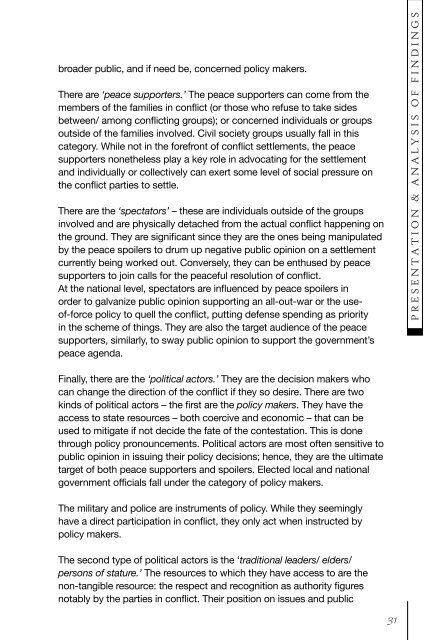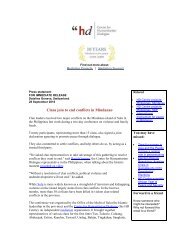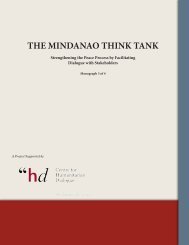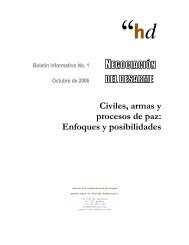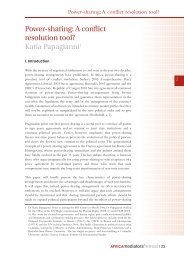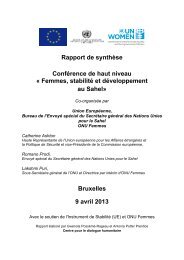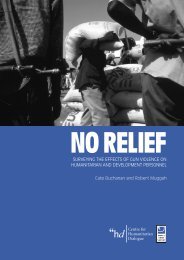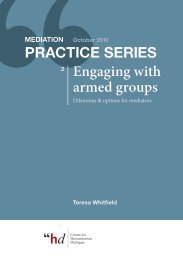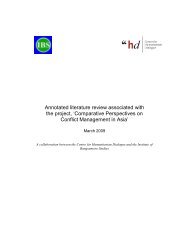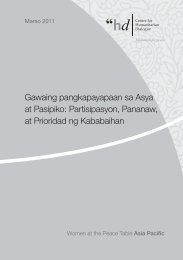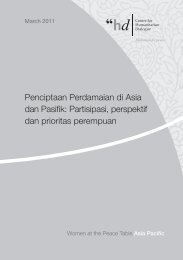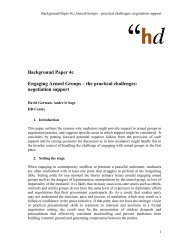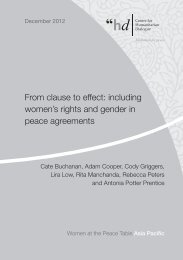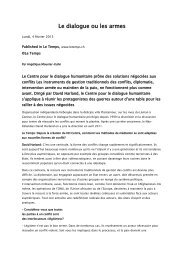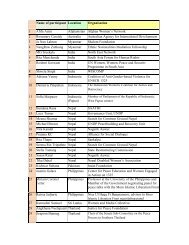Pagpati'ut - Centre for Humanitarian Dialogue
Pagpati'ut - Centre for Humanitarian Dialogue
Pagpati'ut - Centre for Humanitarian Dialogue
You also want an ePaper? Increase the reach of your titles
YUMPU automatically turns print PDFs into web optimized ePapers that Google loves.
oader public, and if need be, concerned policy makers.<br />
There are ‘peace supporters.’ The peace supporters can come from the<br />
<br />
<br />
outside of the families involved. Civil society groups usually fall in this<br />
<br />
supporters nonetheless play a key role in advocating <strong>for</strong> the settlement<br />
and individually or collectively can exert some level of social pressure on<br />
<br />
There are the ‘spectators’ – these are individuals outside of the groups<br />
<br />
<br />
by the peace spoilers to drum up negative public opinion on a settlement<br />
currently being worked out. Conversely, they can be enthused by peace<br />
<br />
<br />
order to galvanize public opinion supporting an all-out-war or the use-<br />
<br />
in the scheme of things. They are also the target audience of the peace<br />
supporters, similarly, to sway public opinion to support the government’s<br />
peace agenda.<br />
P R E S E N T A T I O N & A N A L Y S I S O F F I N D I N G S<br />
Finally, there are the ‘political actors.’ They are the decision makers who<br />
<br />
policy makers. They have the<br />
access to state resources – both coercive and economic – that can be<br />
used to mitigate if not decide the fate of the contestation. This is done<br />
through policy pronouncements. Political actors are most often sensitive to<br />
public opinion in issuing their policy decisions; hence, they are the ultimate<br />
target of both peace supporters and spoilers. Elected local and national<br />
<br />
The military and police are instruments of policy. While they seemingly<br />
<br />
policy makers.<br />
The second type of political actors is the ‘traditional leaders/ elders/<br />
persons of stature.’ The resources to which they have access to are the<br />
<br />
<br />
31


